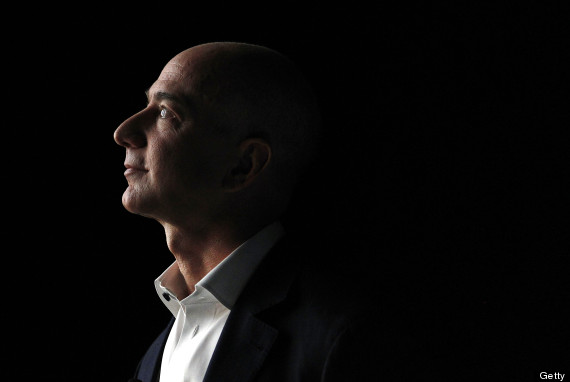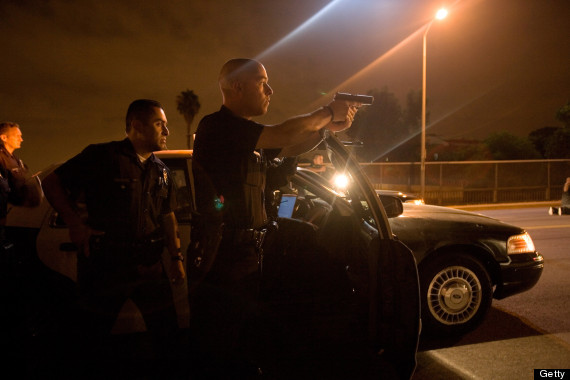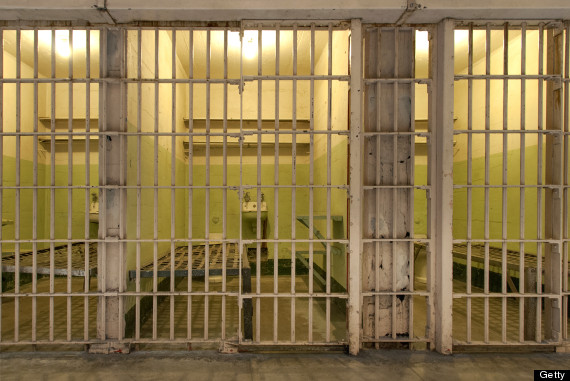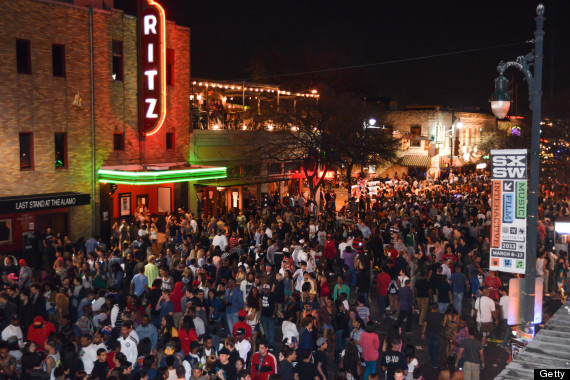
1. The Man Who Sees The Future
The news this week that Jeff Bezos, the CEO of Amazon, purchased The Washington Post for $250 million led many to wonder about What It Means for the newspaper specifically and the future of journalism more generally.
The truth is, no one really knows whether Bezos bought the Post in order to serve as a charitable benefactor or because he sees the Next Big Thing coming around the bend. But as J.J. McCorvey writes in a new cover story in Fast Company, published with incredible timing just hours after The Washington Post sale was announced on Tuesday: "Given the astounding growth of Amazon, and the seemingly infinite ways it has defied the critics, Bezos may have proved himself the best CEO in the world at taking the long view."
Bezos' big plan, McCorvey writes, is "to make Amazon the dominant servicer -- not just seller -- of the entire retail experience." Already, the company has evolved from an online bookseller to a dominant e-commerce site, selling everything from televisions to toilet paper. Much of the web is also powered by Amazon's cloud computing services. Pretty soon, you'll be able to order fresh groceries through Amazon and have them delivered to your door the same day (in Seattle, you already can). This is the future of shopping, McCorvey writes: "whatever you want, whenever you want it, wherever you want it, as fast as you demand it."
At the start of a new era for The Washington Post, McCorvey's piece is a great look at where Bezos and Amazon are going next.
Bonus: For more insight into Bezos, read this great interview with Wired from 2011.

2. 'The Guantánamo Bay Of The Legal System'
In The New Yorker, Sarah Stillman has a piece that's hard to read, mostly because you're too busy shaking one fist in anger and frustration, while reaching for a pitchfork with the other. She details how local law enforcement agencies around the country are invoking civil-asset forfeiture laws in order to take money, jewelry, cars and even houses from people who have not been convicted of any crime. In Tenaha, Texas, for example, the police pulled over Jennifer Boatright, her two young sons and her boyfriend, and offered them a deal: "They could face felony charges for 'money laundering' and 'child endangerment,' in which case they would go to jail and their children would be handed over to foster care. Or they could sign over their cash to the city of Tenaha, and get back on the road." They signed over the cash.
It's highway robbery -- literally -- and it's happening all over the country. Because the police typically get to keep a portion of the proceeds from what they seize, the law, which was originally intended as a way to put the seized assets of major drug dealers to use fighting crime, has instead become a way for cash-strapped agencies to pad their own bottom lines (and for law enforcement officials to line their own wallets). The incentives are truly perverse.
This is hardly a new phenomenon. In The Huffington Post last year, Radley Balko raised concerns about civil-asset forfeiture in a story about Trekies who fought back, after a particularly illustrative incident in Illinois. He also uncovered the story of a family who had its bail money seized because the police said it contained drug residue -- even though the family could prove it had just withdrawn it from the bank.
But Stillman's article is a stark reminder of how widespread the problem is, and its placement in The New Yorker could elevate how the victims are often society's most vulnerable, and how difficult it is to right these wrongs. “Forfeiture cases like these are almost impossible to fight,” a lawyer who works on such cases told Stillman. “It’s the Guantánamo Bay of the legal system.”
Have you read a good longform feature lately? Email me at sasha@huffingtonpost.com.

3. The Confessions Of Innocent Men
In The Atlantic, Marc Bookman highlights a different but no less alarming phenomenon in the criminal justice system: Why do innocent people confess to crimes they didn't commit? Bookman, a former public defender in Philadelphia, tells the story of one of his clients, Anthony Sylvanus, who confessed in 2001 to committing five murders between May 1980 and January 1981. "He was immediately charged with four of the murders," Bookman writes, "but a problem arose with the fifth. Two other men seemed to be serving time for that one. Long time."
Indeed, those men, Russell Weinberger and Felix Rodriquez, had been in jail for two decades, after they confessed to the murder themselves. Why they did so, and why a jury believed them, is a fascinating and thought-provoking tale. More than that, however, Bookman's article serves as an indictment of a broken system that absolves itself of responsibility and resists reform.
"No apology was issued to either man for his wrongful incarceration during the proceedings," Bookman writes about the judicial wrangling that eventually set Weinberger and Rodriquez free. "In fact, everyone seemed to be under the impression that the criminal-justice system had acquitted itself well. There was no discussion of false confessions, nor did anyone show any interest in possible remedies to minimize such problems in the future." (Again, Radley Balko examines how prosecutors face zero accountability in an article posted last week.)
Bonus: Speaking of criminal confessions, Chris Heath has a great read in GQ about the Swedish serial killer known as Thomas Quick. It's a thriller straight out of Hollywood (complete with a kicker you don't see coming). Heath won a National Magazine Award last year for his GQ story about the wild animal escape in Zanesville, Ohio. Earlier this year, in May, when the Ellie winners were announced, Health was reluctant to discuss his next assignment. “When it comes out, you’ll understand why I couldn’t explain it anymore. If it works, it’s quite something,” he told Women's Wear Daily. It is.

4. Austin Reaches Its Limit
I've never been to Austin, Texas. But I feel like I have been. Or, at least, to "Austin" -- that mecca of all that is hip, the place where creative-minded people relocate when they get fed up with boring old wherever-they-are. Now, though, Austin's reputation as the epicenter of "cool," the very thing that drives the city's economy, may end up doing it in, Mike Kanin reports in The Austin Chronicle.
All of those festivals and events -- South by Southwest, Austin City Limits, Formula One, the X Games starting in 2014 -- that bring throngs of people to Austin every year have become too popular. "We have maxed out both the available meeting room space and the available hotel room space in the city," SXSW's Brad Spies says. There is literally no way for the event to grow.
Moreover, all these events are threatening to overwhelm the city's resources. Food inspectors, the police, the fire department -- all are stretched thin. Detectives are being pulled off investigating active cases. "Victims aren't being called, sometimes video evidence is lost because they didn't inquire in time," Austin police commander Bill Manno says.
Think about that when you pack your Warby Parker sunglasses and head to SXSW, why don't you!
(Disclosure: Mike's an acquaintance I know through the D.C. music scene. It's like This Town, except instead of Georgetown dinner parties, we were both at punk shows in church basements in an earlier era.)

5. The Hollywood Flop
It's official: The latest big-screen version of "The Lone Ranger" is a dramatic failure. Disney announced this week that it expects to lose between $160 and $190 million on the film.
Johnny Depp, co-star Armie Hammer, director Gore Verbinski and producer Jerry Bruckheimer have all blamed critics for the box office catastrophe.
"I think the reviews were written seven or eight months before we released the film,” Depp said. "They decided to slit the jugular of our movie," Hammer agreed. (Just 10 percent of top critics on Rotten Tomatoes gave the film a thumbs up.)
But if you decide to see the movie anyway (or even if you don't), it's worth reading Katie Ryder's article in the Paris Review about the history of Native American characters in Hollywood films -- particularly the fact that many of the actors playing them were not actually Native American. Depp, it seems, is among them -- though he has claimed Native American ancestry in various interviews over the years. Ryder writes:
In an interview with James Lipton in 2002 he said that his great-grandmother “had a lot of Cherokee blood.” In 2011 he told Inside Movies that this [sic] grandmother grew up “Cherokee or maybe Creek,” and in a June interview this year with CBS Sunday Morning he said “either Cherokee or Chickasaw or Creek or something.” To NPR, in the run up to Ranger, he amended, “Could have been Cherokee, could have been Creek, could have been Choctaw,” and, “It was always something that I always felt very proud to have.”
But despite these claims, Ryder writes, "readily available records show that Depp likely has no Native heritage, and certainly not three generations back where he claims it."
Bonus: In the latest issue of Huffington, Jason Cherkis and Zach Carter write about how Mitch McConnell has misruled Kentucky over the past 30 years. Download the issue for FREE in the App Store.
